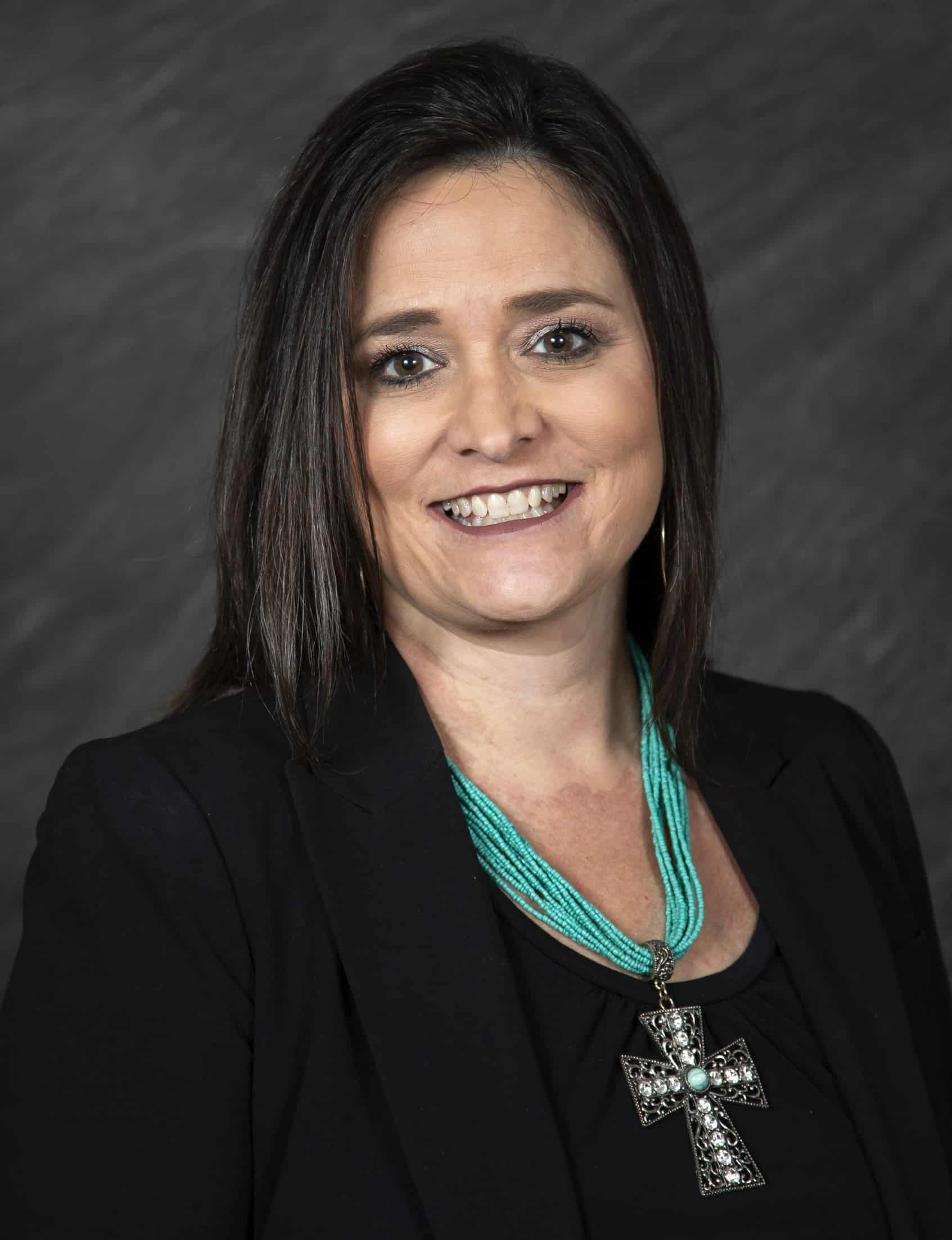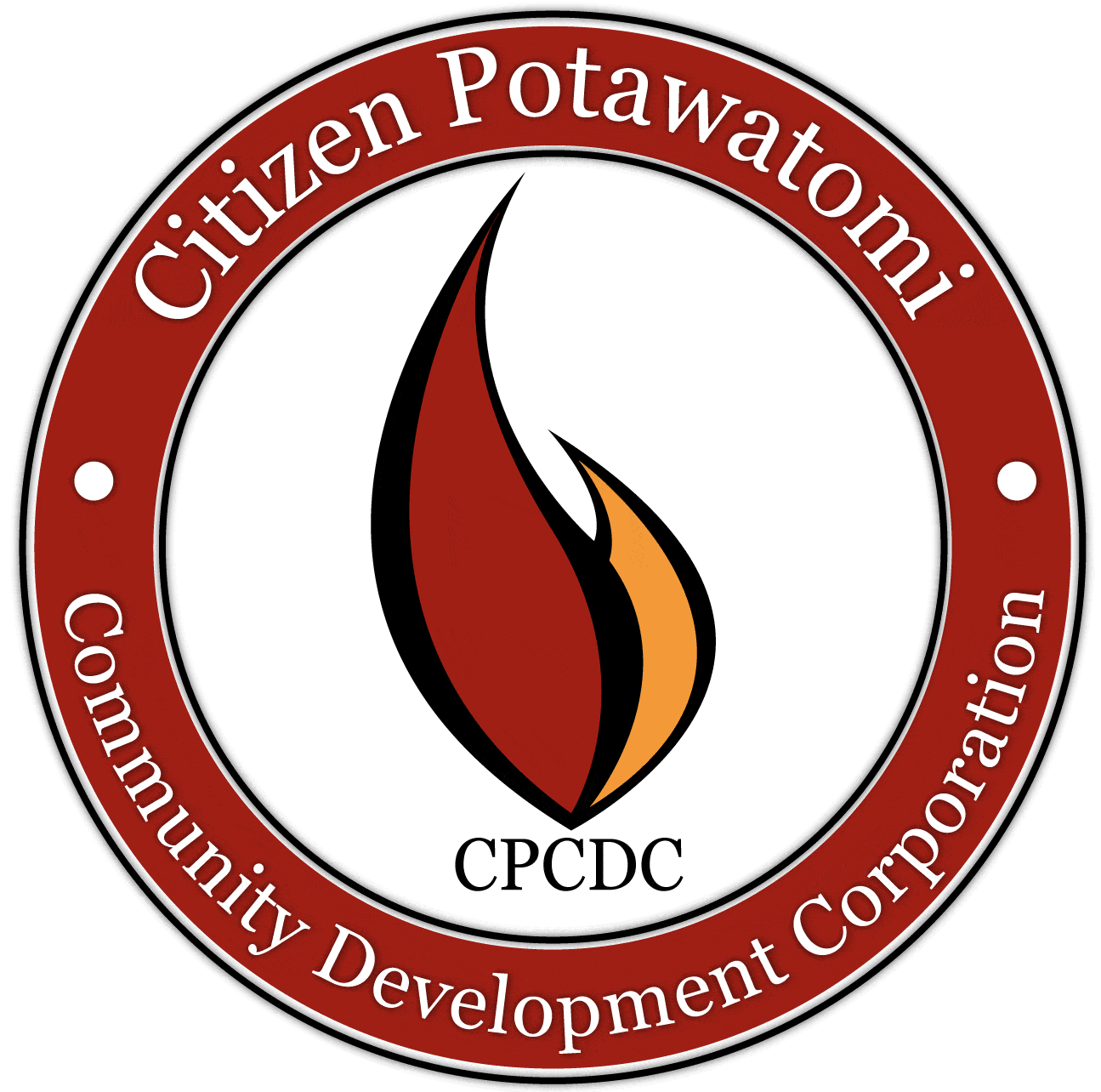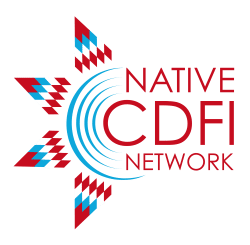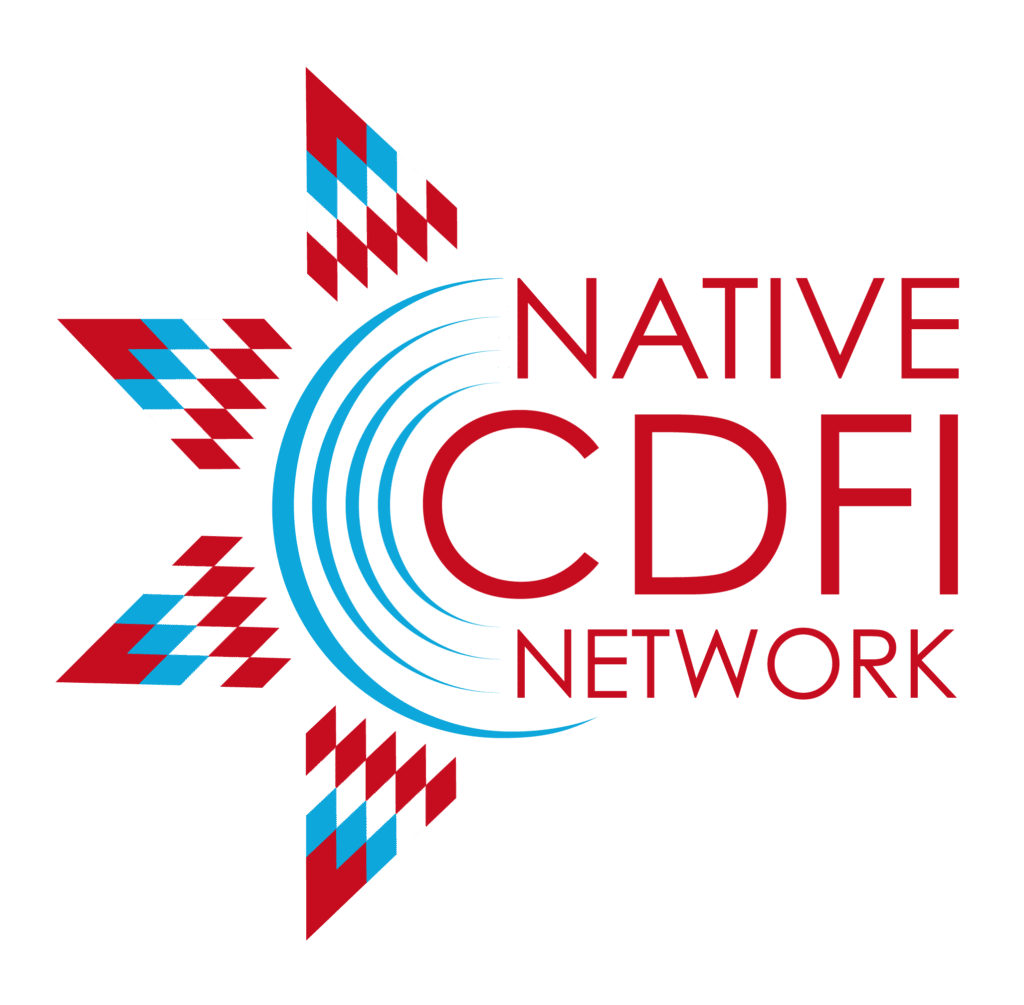
In this latest edition of “Difference Makers,” NCN sits down with Cindy Logsdon, who serves as CEO and Executive Director of the Citizen Potawatomi Community Development Corporation (CPCDC), a federally certified Native CDFI based in Shawnee, Oklahoma. Chartered by the Citizen Potawatomi Nation (CPN), CPCDC provides capital and technical assistance for projects that create a healthy tribal economy through a commercial loan program designed to help Native businesses become more competitive and profitable. CPCDC also assists tribal members who lack financial resources and readiness with business development and planning, financial education, financial management services, marketing, and contracting.
Logsdon came to the Citizen Potawatomi Nation in 2004 after a 15-year career in banking. She is proud to have implemented programs such as the Citizen Potawatomi Asset Builders IDA program and has assisted in making over $40 million in loans to Native entrepreneurs. She also serves on the advisory board of the Oklahoma Native Assets Coalition, as an advisory member of Midwest Renewable Capital, and as Board Treasurer of the Native CDFI Network.
In this insightful conversation with NCN, Cindy shares how CPCDC empowers all Native communities across Oklahoma, and how its targeted loan products and services foster local commerce and individual and familial asset building.
NCN: Greetings Cindy, it’s good to have you with us today. Welcome.
Logsdon: Thanks so much.
NCN: Why do you do what you do? How did leading the Citizen Potawatomi Community Development Corporation become your life’s calling?
Logsdon: Growing up, I didn’t know what I wanted to be. When I went to college, I had no clue. I ended up in the banking world, working my way through college as a teller. I probably worked about every job there was within the bank besides proofing. That gave me a lot of training and introduced me to the lending side of things. I left the banking world after 15 years as a banking officer over operations, and that’s how I think – operationally and systematically. I went to work for the tribe in the accounting department back in 2003, and I knew really quickly this is not for me. The CDFI had been founded four months prior, and the then-executive director came to me and said, “Hey, I have this position open. If you’re interested, would you bring me your resumé tomorrow?” That’s the point where I’m Googling, “What is a CDFI?” That was my first introduction. Since that day, I’ve done a little bit of everything, from underwriting loans to the assistant director role, which worked into the CFO role and compliance.
I am not Native, but my husband and my children are Citizen Potawatomi Nation tribal members. That was my first introduction to the Native world. There are several tribes right here in my community. Of course, I knew of the tribe, but was never involved in the culture until I met my mother-in-law and connected with her. It hit home for me that I wanted a better future for my children and I wanted them to know their culture. So I think, “Why is this your calling in life?” Well, I’m so passionate about it. I’ve learned that the culture, it means so much to pass that on to the future generations. I’m about to have my first grandbaby in December and I want them to know their culture and where they came from. That translates over to our clients as well. The relationship you form with them through the lending process, I care about them and their future and I want to make sure that we do what we can to make a better tomorrow.
“We were established to enhance the tribal economy, and that’s exactly what we’ve done. It’s a win-win whenever we can make a loan, even to the tribal enterprises, because those dollars stay within the economy. How many times can we turn that dollar we’ve got within the community instead of that dollar going to the big bank down the street?”
NCN: As you know, there are more than 70 federally certified Native CDFIs across the country and many more “emerging” CDFIs following in their footsteps. Why did Native communities feel it necessary to create CDFIs, and what fundamental role do they play?
Logsdon: Often banks don’t understand our communities and so the dollars just aren’t getting injected into our tribal economies. We were established to enhance the tribal economy, and that’s exactly what we’ve done. It’s a win-win whenever we can make a loan, even to the tribal enterprises, because those dollars stay within the economy. How many times can we turn that dollar we’ve got within the community instead of that dollar going to the big bank down the street? So our role is about access to capital, of course, contributing to our tribal economies, education, and those things that individual maybe isn’t receiving at home – good financial decision making and goal setting and those sort of things. If they don’t have a mentor in their life, maybe we can be a resource in some way.
NCN: What do policymakers, philanthropy, banking institutions, and the general public who aren’t familiar with Native CDFIs need to understand about them and the difference they make?
Logsdon: I think just the general lack of knowledge of what a CDFI is. Maybe we don’t do a good enough job of telling our story and getting that out there. CPCDC is probably known nationwide more than in our own community. Why is that? We get most of our business through word of mouth. We need to better educate others of what we can bring to the table. If you’ve already been to the bank three times and then you learn there’s a CDFI, that there’s somebody who will hold your hand through the process and do what needs to be done on the groundwork – that’s the space we fill. All of our Native CDFI voices need to be raised, not just ours. But I get so busy in the day-to-day work that sometimes I don’t think about the messaging, which we could do a better job of.

NCN: Let’s turn to the Citizen Potawatomi Community Development Corporation. According to CPCDC’s website, your mission is “to finance, promote, educate, and inspire the entrepreneurial growth, economic opportunity, and financial well-being of the Citizen Potawatomi Nation Tribal Community and other under-served Native populations through financial education, access to capital, business development services, innovative capacity building practices, and community development initiatives.” That is quite a comprehensive approach – tell us more!
Logsdon: Well, it’s grown through time, of course. We look at CPN’s tribal community even broader, which is why we put that next phrase in there “and other under-served Native populations.” We serve all Native Americans living within the state of Oklahoma. They are our neighbors, and they went through the same trials and tribulations as CPN has. Right next door is the Absentee Shawnee Tribe. That’s still our tribal community. And then we serve our tribal members nationwide, although most of our lending is still here in Oklahoma. That’s a lot right now for a staff of eight. We have to be lean and mean, and our next step will be staff growth so we can further push the envelope. We’re totally self-sufficient and have been for five years. That is based on being able to participate in large-scale programs like the CDFI Bond Guarantee Program, which other Native CDFIs haven’t been able to participate in. For whatever reason, it’s a very complicated structure. We participate on loans with other Native CDFIs to make sure a deal doesn’t go undone in Native America. We have participated all across the nation to make deals happen. Often, another Native CDFI has hit its loan limits or it doesn’t have experience closing that large of a loan. So that other Native CDFI will come to us and we’ll buy in. They are the lead lender. They have the relationship. We don’t have the relationship, but we want to make sure those deals don’t go undone. That’s why it says “other under-served Native populations,” because those are our community as well.
NCN: As a tribally chartered Native CDFI, CPCDC works hand in glove with the Citizen Potawatomi Nation, including offering specialized services for Nation employees to help them protect and grow their assets, namely the Employee Loan and Jumpstart Auto Loan programs. Why did CPCDC create these services and how they are helping clients become more financially self-sufficient?
Logsdon: CPN Vice-Chairman Linda Capps approached us and said, “I’m having a lot of employees come to me for emergencies. I’m seeing garnishments from payday loan companies. I believe that a lot of staff time is lost because someone is having financial difficulty and they’re spending a lot of time at work on that.” CPN owns a federal bank, but it just wasn’t cost-efficient for the bank to take all these small dollar loans on. So the tribe seeded that program, and today that loan fund just revolves – we don’t have to intject any funds back to into it. But we added a financial education component to it where we review someone’s credit with them. We can say, “This is what you’re doing really well, but this is what you can work on.” And we talk about predatory lending.
With Jumpstart Auto, employees were facing barriers getting to work. If you live in Oklahoma, there’s no public transit. You have to have reliable transportation. But we were seeing some people weren’t bankable. They would have to go the “Buy Here, Pay Here” lots that were charging over 30% interest to their clients. So our target market is somebody who can’t go to the bank and has to go to an alternative lender. We step in to make sure they have a reliable vehicle. On both of those programs, we do payroll deductions, so they’re not writing a check. That makes it convenient. Those both have been really successful programs.
NCN: In February 2022, you were appointed to serve on the Community Development Advisory Council for the Federal Reserve Bank of Kansas City. Why is it critical for Native CDFI leaders to have a voice at these important decision-making tables, and what do you hope to achieve through your participation on the Advisory Council?
Logsdon: I was surprised and honored by that appointment. The first meeting they explained we were there to advise about our communities and what we were seeing in our communities. To see how knowledge sharing influences monetary policy, I think to myself, “Gosh, I can influence that.” It’s bringing the needs of Native communities into a circle where it creates inclusion, it creates awareness. Although I’m non-Native, I bring forward those Native voices by sharing what I see in the communities we serve. It’s very important for Native communities to be represented at that table and have their voices heard.
NCN: CPCDC has helped a great number of people. Is there an individual client success story that really sticks out to you, that really inspires you?
 CPCDC client Kelly Price, owner of Redbone Indian Tacos. (Courtesy: Redbone Indian Tacos)
CPCDC client Kelly Price, owner of Redbone Indian Tacos. (Courtesy: Redbone Indian Tacos)Logsdon: The one that sticks out for me is a lady named Kelly Price. She was working full-time and she decided to buy a food truck. She does Indian tacos at the little town of Medicine Park, Oklahoma. It’s a very picturesque, quaint town on a stream. She takes her business to different events each weekend, and she usually sells out. She’s been able to grow to open a second location, and she recently purchased some Airbnbs, so she’s been able to really leverage that first business and hasn’t need us in her two expansions. Of course, our goal is to make someone bankable so they don’t need us anymore.
NCN: From your perspective, what do Native CDFIs like yours need to realize their full potential? What support do they need to achieve their missions and maximize their impact?
Logsdon: I think capacity building initiatives, if they’re done right, are really effective. I was in Cohort One of the CDFI Fund’s Building Native CDFIs’ Sustainability and Impact I Program in 2012. It was a year-long program where you can network with and learn from others. Anything like that where you and your staff can get some understanding and training just builds your capacity.
Mentorships and partnerships are also critical. We’re not an emerging CDFI, we’re a mature CDFI, in part because we’ve had mentors through time. You have to have those mentors you can call to give you answers and guidance. For example, finding talent can be, especially in today’s job market, very challenging. How do you get the right people who are going to be as passionate about the work they do as you are? How can we assist other Native CDFIs to grow to scale and push the envelope? How do I get involved in these programs? If our loan deployment is low, how do we increase it? And if you have deals you can’t get done on your own, let’s get them done with another Native financial institution that could be a Native-owned bank or CDFI. But let’s get deals done. Don’t let them go undone because you don’t have partnerships.
To learn more about the Citizen Potawatomi Community Development Corporation, please click here.

